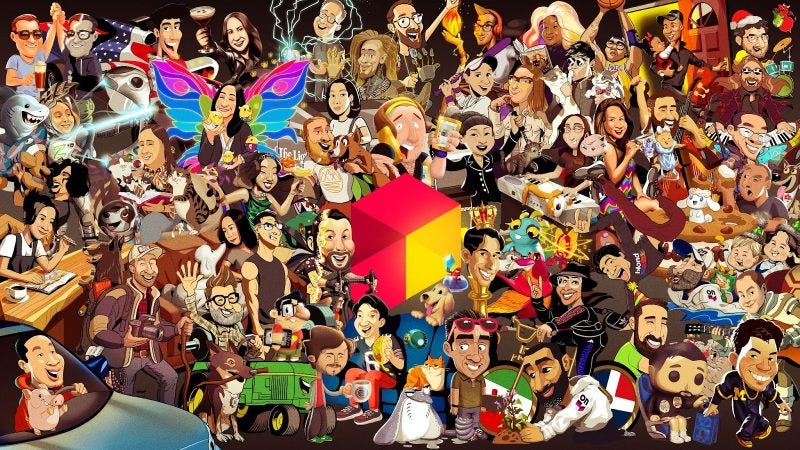The old saying goes, “If you love what you do, you’ll never work a day in your life.”
That also goes for who you work with. Even the most cutting-edge job can feel stagnant if you are limited creatively and professionally by co-workers who limit what you work on. The opposite of that is, of course, working in any job with co-workers who are stimulating you creatively and encouraging and inspiring each other for every project. Few people know this, including Arash Rod, a lead artist for the tech company ON Platform.
Coming out of school, he had many potential career paths to decide on, with an eye focused on the animation industry. An interview with Nickelodeon changed his mindset on how to develop his career and ultimately led him to a position in tech at ON Platform that he has held for the last nine years. Initially, Arash felt that he was going to work for large companies in the animation industry (like Nickelodeon); however, in interviewing, he found that his skillset and previous experiences better fit smaller startup companies.
Thus, he began his trip at ON Platform. He quickly found that at smaller startup companies, he was encouraged to introduce his personality into the work. This is different from larger companies, which expect their artists to fit the mold of their brand. As the company grew, Arash found that his artwork and designs became a key pillar to that growth, which led to his feeling that his personality became part of the essence of the company. This is much more difficult to feel when you are joining mega-corporations that don’t need to develop an identity or aren’t interested in doing so.
There is also a general feeling of camaraderie at smaller companies that comes from working “in the trenches” to help get a company established. As he describes it, “You also become part of a family working together to present something special…”. This leads to meaningful connections with co-workers, something that can feel difficult at mega-companies that are generally asking for content that fits a formula that has already been designed and decided on.

A great example of this is in artwork that Arash designed for himself as a tribute to the people who have worked together to get ON Platform to the place it is today. He designed a collage of all the people who have come through the projects he has worked on. It’s a touching tribute to the individuality and creative uniqueness that can flourish at smaller companies, “The other thing I thought made our company different was to make every member of our company feel unafraid to share their little world with others.”
This collage shows the huge range of unique personalities that turn a startup into a large company. In it, you can see beer enthusiasts, fitness nuts, animal lovers, musicians, sports fans, readers, and many, many more personalities. You wouldn’t be able to find this kind of information if you were just a cog in a large company. This knowledge comes from hours spent problem-solving and brainstorming when you spend hours and hours together in conversation that is tangential and deep. It shows the many places that creativity can come from and the different types of personalities needed to make a company grow.
When a work environment is so elastic, it makes tackling any problem during projects exciting as opposed to confrontational. Imagine working together with people you know well enough to create something like this collage instead of being told what the only answer can be according to corporate decisions. It would be almost impossible not to grow as a person and professional in an environment where so many different ideas are flowing. Looking at this collage, it’s not hard to imagine the passion and different artistic points of view that each person would bring to a project at ON Platform. That can only serve to make you a better artist as well.
After 9 years of working in such an environment and thinking about that fateful Nickelodeon interview, Arash Rod sums it up,
“Sometimes, it’s not about the career choices you pick. Sometimes, it’s about the culture, history, and the people you’re working with that can shape your professional career over years of experience, and you need to trust that nature, or you’re going to be lost in your career path.”
Percy Burns is a writer who explores the meeting place between tech and the creative fields and what can be possible by combining both.

